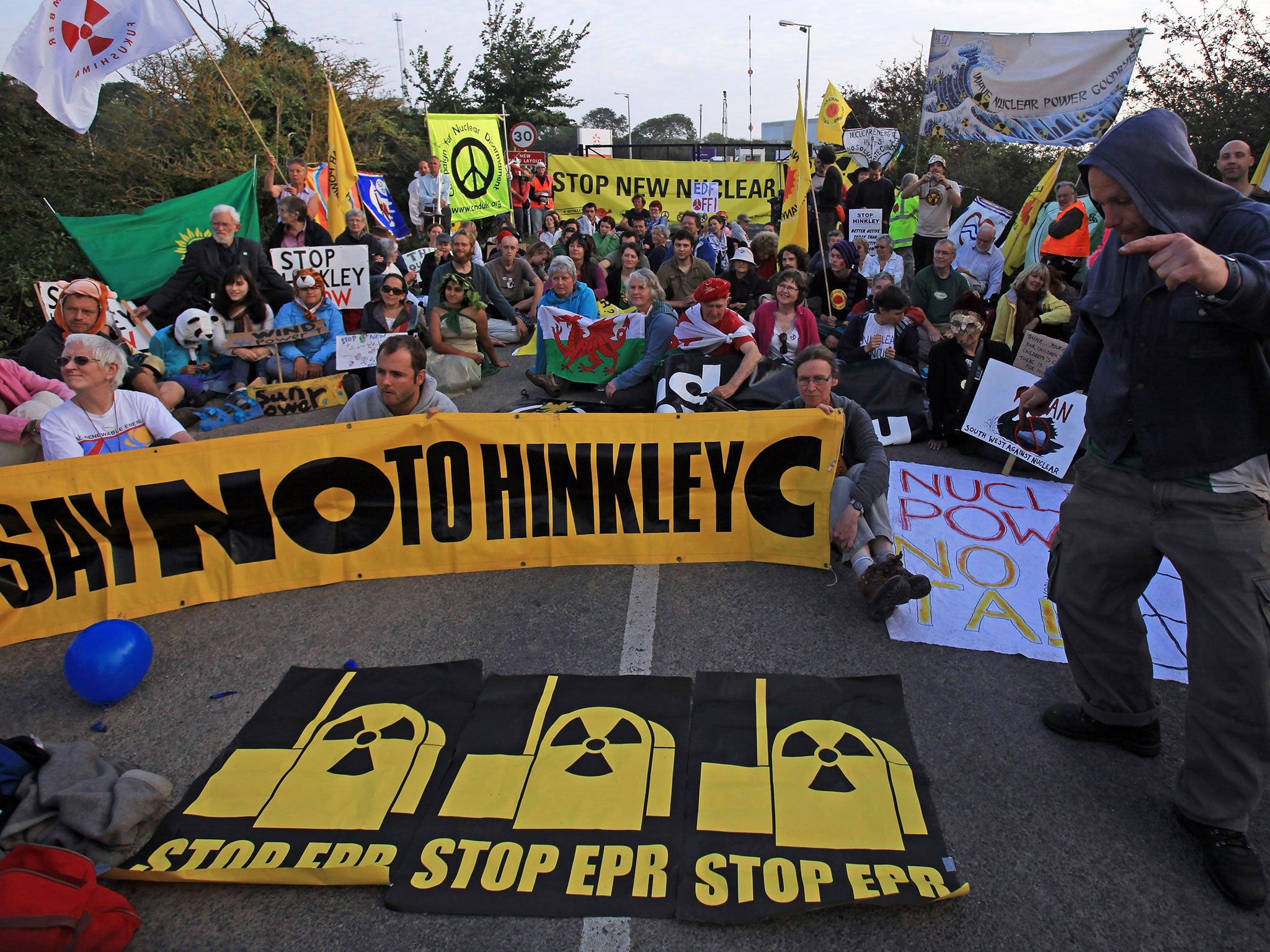Nuclear boss wants to cut family fuel aid
Chief of French company poised to build reactors in Britain also argues against European subsidies for renewable energy

The boss of a company set to build two nuclear reactors in Somerset has been demanding cuts to renewable energy subsidies and to help for people in fuel poverty while quietly lobbying the European Commission for financial help for new nuclear power stations.
Areva, which is part owned by the French state, has signed a contract to build nuclear reactors for EDF, another French company, at Hinkley Point. If it goes ahead, it will be the first new nuclear power plant in Britain for a generation. Areva already has hundreds of engineers working on the project.
EDF and the Government are locked in negotiations over how much the firm will be paid for the electricity it produces at Hinkley. Even though the Coalition Agreement states that new nuclear power stations will only go ahead if "they receive no public subsidy", the Government is offering to guarantee a minimum price for the electricity produced for up to 40 years. Critics say this amounts to a subsidy.
Until now, it was widely assumed that EDF was leading the call for subsidies for new nuclear. But a new document reveals that last November, Areva's chief executive officer, Luc Oursel, lobbied the European Environment Commissioner, Connie Hedagaard, for financial help for the construction of new nuclear power stations. He asked the commission and European Central Bank to give "credit guarantees … to be used as a catalyst to ease the financing of low-carbon technologies", such as nuclear. His letter was obtained by the NuclearSpin website under European Freedom of Information laws. Mr Oursel also called for the "progressive removal" of "a stack of ad hoc tariff distortions" – such as "subsidies for renewables [and] energy poverty". Asking for energy poverty payments to be cut is a world away from the company's image, which was bolstered last month by news that Usain Bolt would run at the firm's annual athletics meeting in the Stade de France this year.
Areva is not alone in lobbying the commission for nuclear subsidies. A pan-European group including many leading nuclear energy companies has also called for the commission to provide public finance for new nuclear power stations. The group, called the European Nuclear Energy Forum, argued in 2011 for "innovative financing" for new nuclear plants, including direct loans and guarantee schemes. A working group headed by a director from Areva produced the report.
The disclosures come as the commission is reportedly about to launch the first stage of a formal investigation into the use of subsidies to support the development of nuclear in the UK. This could delay the nuclear programme for years.
An Areva spokesman said: "Areva has never requested any subsidies for nuclear generation and has no intention to call for the immediate removal of subsidies necessary to the development of renewables."
He also said the company has "never questioned social tariffs that are key to fight fuel poverty".
Join our commenting forum
Join thought-provoking conversations, follow other Independent readers and see their replies
Comments
Bookmark popover
Removed from bookmarks